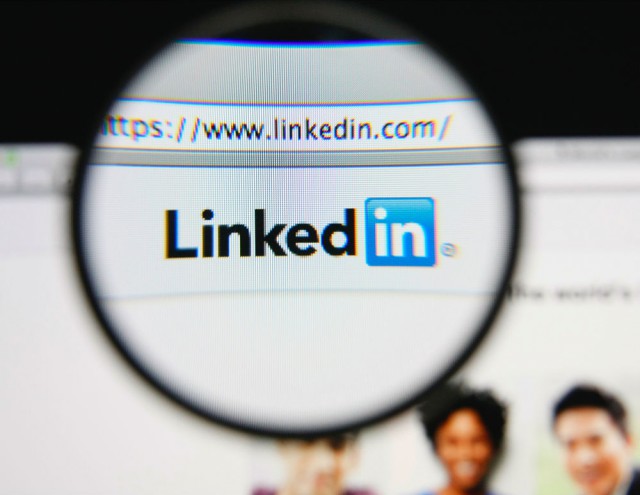
Hidden From Google shows the 'right to be forgotten' is pointless
It's a little while since a European Court of Justice ruling forced Google to start removing search links to certain articles. Dubbed the "right to be forgotten", the ruling led Google to create an online form making it easier for people to get in touch about search results relating to them thought to be "inadequate, irrelevant or no longer relevant". But just like those requests from celebrities to stop publishing compromising images online, it seems like asking for search links to be censored serves only to highlight the existence of the web pages they correspond to.
The court's decision that people should be able to request that information about them be removed from Google searches came after Spaniard Mr Costeja González took exception to links to stories about a series of old debts he had. There are now few people who follow news about Google who are not aware that Mr González has a less than perfect credit history. It's not clear whether he regards the ruling as a personal victory, but the appearance of Hidden From Google is sure to ruffle the feathers of many who have submitted similar removal requests to the search giant.

1 million users affected by CNET.com hack
News and review website CNET has been targeted by a team of Russian hackers called W0rm. CNET's servers were hit over the weekend, but details have only just been released.
Although CNET has not given a concrete confirmation of exactly what happened, the site explains that a representative of W0rm claims to have stolen a database containing the usernames and passwords of over a million users. It seems a security hole in the Symfony PHP framework was exploited, and it is not yet clear what the fallout could be.

Wilson's Weekend Whine: Snowden is right to be disgusted at UK 'emergency surveillance bill'
When we talk about surveillance online, it is almost always with reference to the NSA and activities in the US. But US citizens are far from being the only web users affected by surveillance. The NSA has long arms, but there are also similar activities going on in plenty of other countries. This week in the UK, the government is pushing through legislation that requires phone and internet companies to store information about customers' communication, and to hand it over to authorities on request. What made this particularly unusual was the fact that this was classed as emergency surveillance legislation with little to no debate and, more importantly, no public consultation whatsoever. Edward Snowden has plenty say on the matter, likening the British government to the NSA.
The legislation covers not only UK-based companies, but also those based in other countries who have gathered data about UK customers. It is in direct opposition to a recent European court ruling that said retention of data was a violation of European law. This in itself would be reason for any surveillance-related laws to be debated, but the government chose instead to use emergency measures -- usually reserved for times of war or disaster -- to push through laws it knows will prove unpopular. As we are now used to hearing, the surveillance is not about recording phone calls, or storing individual emails and text messages, but about retaining the related metadata -- who contacted who, when, for how long, from where, and so on.

Kim Dotcom's extradition hearing delayed until 2015
Kim Dotcom's extradition hearing has been delayed again as the Megaupload founder continues to fight a series of criminal charges and civil lawsuits.
It is claimed that Megaupload was used to store and share films and other content illegally, but Dotcom has denied all charges.

The most popular stories on BetaNews this past week: June 29 -- July 5
Something of a quieter week this week -- perhaps because of Independence Day and preparations there for. Still, there was plenty of news to keep us busy, including the NSA releasing a transparency report -- for what it's worth. Facebook found itself in the firing line after it transpired that the social network had been conducting psychological experiments by meddling with users' newsfeeds. Security is an on-going concern in technology, but it's something we have tendency to think about only in relation to computers and smartphones. One of the latest targets for malware and attacks is the power grid, and it's hard to tell what sort of havoc could be wreaked.
Microsoft tried to do its bit for security -- arguably in a misguided fashion -- by taking control of dynamic DNS service No-IP, and accidentally taking out a number of legitimate sites in addition to those malware-related ones -- the intended targets. In more positive Microsoft news, enhancements were made to Office 365's collaboration options. Windows Phone is still struggling in the smartphone market, but Microsoft will be hoping that this month's launch of Windows Phone 8.1 will help to improve things -- will the addition of folder support be enough? Looking further into the future, Joe pondered what Microsoft should do with Nokia. He also decided to give Windows another chance, helped along by his new Surface Pro 3.

Facebook faces official complaint over deceptive newsfeed experiment
The revelations about Facebook's emotional experiment with users' newsfeeds back in 2012 has seen the social network fighting off a torrent of criticism. Users were upset to learn that the content of their newsfeed may have been manipulated as researchers tried to determine the effects exposure to positive and negative newsfeed content had on users' subsequent output. Now an official complaint has been lodged against the social network by thee Electronic Privacy Information Center. Epic filed a complaint with the US Federal Trade Commission, alleging that "the company purposefully messed with people’s minds".
There are several lines of attack in the complaint, but the main thrust is that Facebook neither obtained permission from the 700,000 affected users, nor informed them about what was happening. Epic also complains that Facebook failed to warn users that their data would be shared with researchers at Cornell University and the University of California. The complaint points out that "at the time of the experiment, Facebook was subject to a consent order with the Federal Trade Commission which required the company to obtain users' affirmative express consent prior to sharing user information with third parties".

Facebook gives with one hand and takes with the other
Social networks are funny beasts, and this is certainly something that's true of Facebook. The site has a patchy history with regard to user privacy, and there are constant complaints about how personal content is used, who can gain access to it, and the privacy settings that are in place. But like all modern companies, Facebook likes to be seen listening to its customers -- or at least appear to listen. A recent example of 'listening to the people' is Facebook's reaction to the #FreeTheNipple campaign which ultimately led to the site bowing to pressure and permitting photos of breastfeeding to be published. There have also been numerous instances of responding to complaints and making privacy settings easier to control.
Like Microsoft, Google, Yahoo, and even the NSA, Facebook has released transparency reports that detail data requests and the like. Transparency reports are something that users all but demanded, and delivering them is excellent PR for the companies involved. Now Facebook is taking things up a notch, fighting for users' rights in court. Earlier this week it emerged that the social network is fighting a US court order which forced it to hand over user data. The data was requested as part of an investigation into benefit fraud. Facebook complied but complained that it was a violation of the Fourth Amendment.

Aereo's Supreme Court loss proves Washington has no business making decisions on technology
We've seen this before. Washington DC proving time and again its lack of knowledge about the modern technological world. We witnessed it when Ted Stephens, in a speech to congress, famously referred to the internet as "a series of tubes". Most recently, we've had to deal with the FCC looking to put an end to Net Neutrality -- see John Oliver's description for the best explanation on that. The latter is more likely less about knowledge and more about being in the pockets of cable company lobbyists.
Now the latest blow has been dealt. The Supreme Court has handed down its decision on Aereo. If you aren't familiar, Aereo is, or perhaps was, a TV provider which was moving into various cities around the US. If it was in your market, you could "rent" an antenna which picked up over-the-air (OTA) broadcasts. The company then retransmitted this to the customer via an internet connection. Each customer rented his or her own dime-sized antenna.

US Supreme Court squares up to software patent trolls with stricter rules
A ruling by the US Supreme Court could change the way patents are assigned in the future. A case between New York-based CLS Bank International and Australian company Alice Corp found judges unanimously agreeing that software patent was invalid because it was simply an existing idea transferred to a computer. In order to qualify for a patent, an idea must be unique, and the court ruled that the simple addition of a computer application is not enough.
CLS Bank International had complained that Alice Corp had applied a "generic computer implementation" to a patent owned by the bank, rendering it invalid; the court agreed. "The representative method claim does no more than simply instruct the practitioner to implement the abstract idea of intermediated settlement on generic computer", the ruling states.

Twitter reinstates tweets that mock the Prophet Muhammad and depict Koran burning
Twitter has reversed blocks it placed on numerous tweets and accounts in Pakistan that were deemed "blasphemous" and "unethical", including some that featured anti-Islamic content, depictions of the Prophet Muhammad, and photos of the Koran burning. Pakistani authorities complained to Twitter back in May, and the social network "made an initial decision to withhold content in Pakistan".
But after the Pakistan Telecommunication Authority failed to provide the additional information that Twitter requested, the accounts and tweets have been restored.

Apple opts for an out of court settlement to avoid $800m eBook fine
Apple has avoided an $800 million bill from a clutch of US states and other complainants by reaching an out of court settlement in a controversial price-fixing case.
The settlement, the terms of which are yet to be revealed, still has to be ratified by the court and both sides involved in the deal have 30 days to submit a filing to US District Judge in Manhattan Denise Cote for it to be approved.

LinkedIn to face lawsuit for spamming users' email address books
A judge in the Northern District of California has paved the way for a lawsuit against the social network LinkedIn for violating the privacy of its users. The complaint was that LinkedIn "violated several state and federal laws by harvesting email addresses from the contact lists of email accounts associated with Plaintiffs’ LinkedIn accounts and by sending repeated invitations to join LinkedIn to the harvested email addresses". It relates to the fact that LinkedIn not only used the address books of those signing up for accounts to tout for business by sending out an email to that effect, but also sent follow-up email if there was no response.
US district judge Lucy Koh ruled that while users granted permission for LinkedIn to access their contact list it is this 'spamming' that is likely to land the company in court again. The judge outlined the process users were complaining about, explaining that LinkedIn sent an email to connected in users' address books -- albeit with initial permission -- sends the same email a week later if the recipient has not joined LinkedIn, and a third email if another week passes without a signup.

#FreeTheNipple campaign leads to breastfeeding nipple-shot ban reversal by Facebook
Facebook comes under fire for all manner of things -- it's just part and parcel of being a social network. When users are not up in arms at the site's privacy policies, they are found voicing their disapproval at the types of content they're not allowed to publish on their timelines. There are lots of types of pictures that are frowned upon, and parents were upset to find that many of the photos they posted fell foul of Facebook's moderators. Facebook's Community Standards have never included a stated ban on breastfeeding pictures, but those that included glimpses of nipples were often swiftly removed. A well-publicized campaign that used the hashtag #FreeTheNipple seems to have had the desired result.
As noticed by The Independent, there has been a softening of views as Facebook Moderators are now encouraged to consider the context in which nipples appear in photographs. The Community Standards state "Facebook has a strict policy against the sharing of pornographic content and any explicitly sexual content where a minor is involved. We also impose limitations on the display of nudity". But there is the caveat that "we aspire to respect people’s right to share content of personal importance, whether those are photos of a sculpture like Michelangelo's David or family photos of a child breastfeeding".

Privacy blow -- .UK websites must publicize registrant's name and address
It seems there are new privacy worries at every turn. The latest cause for concern relates to websites in the UK. Nominet, the internet registry services provider for .uk domains, has changed one of its policies, and the change means that individuals running websites may have to reveal their home addresses. There are obvious privacy and security concerns associated with this, particularly for websites run by individuals who wish to remain anonymous -- full names of domain registrants must also be displayed.
Nominet's policy on opting out of appearing on WHOIS searches is not immediately clear. Things start off in a fairly simple fashion. "Only domain name holders that are non-trading individuals can opt out of having their address details published on the WHOIS". Great; my website is just a blog. There's no need to advertise my home address for the world to see, you might think. But 'advertise' could be the key word here. If Nominet classifies you and your site as a business, it is a completely different story and your home address must be displayed.

Queen's speech proposes life sentences for cyber criminals in the UK
Edward Snowden is on the run, living in exile as a means to evade the long arm of US law. The United States seems keen to have him prosecuted for leaking documents that have arguably put national security at risk. He acted in good faith, but has been branded a cyber criminal. Today in the UK, the Queen gave her annual speech -- well, it's really a speech written by the government, but dear Liz reads it out so she gets to call it hers -- and she revealed that cyber criminals could face life sentences for their endeavors, and that existing punishments for digital crimes cold become harsher.
Singled out for particular attention are those "cyberattacks which result in loss of life, serious illness or injury or serious damage to national security, or a significant risk thereof". Those committing such acts could be put behind bars for life. But the proposals do not end there. The aging Computer Misuse Act could be updated, so that criminals that cause "a significant risk of severe economic or environmental damage or social disruption" incur a 14 year term compared to the current 10.
